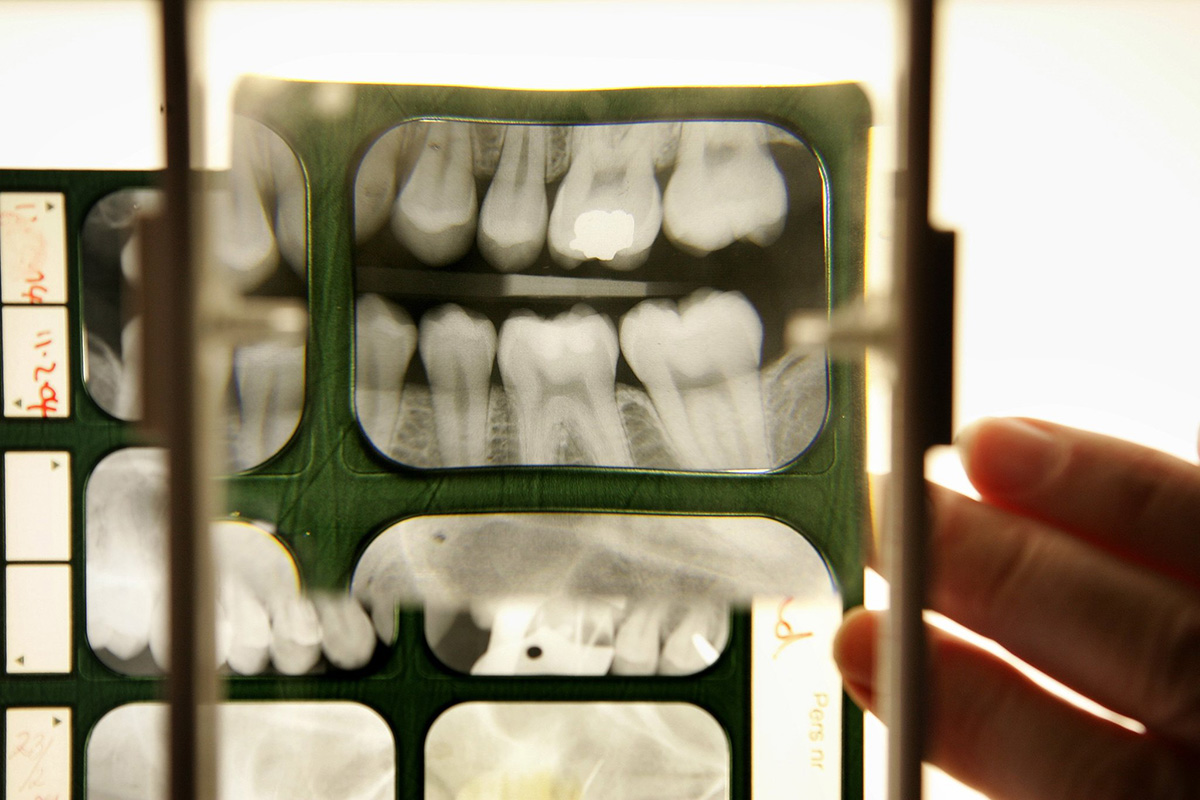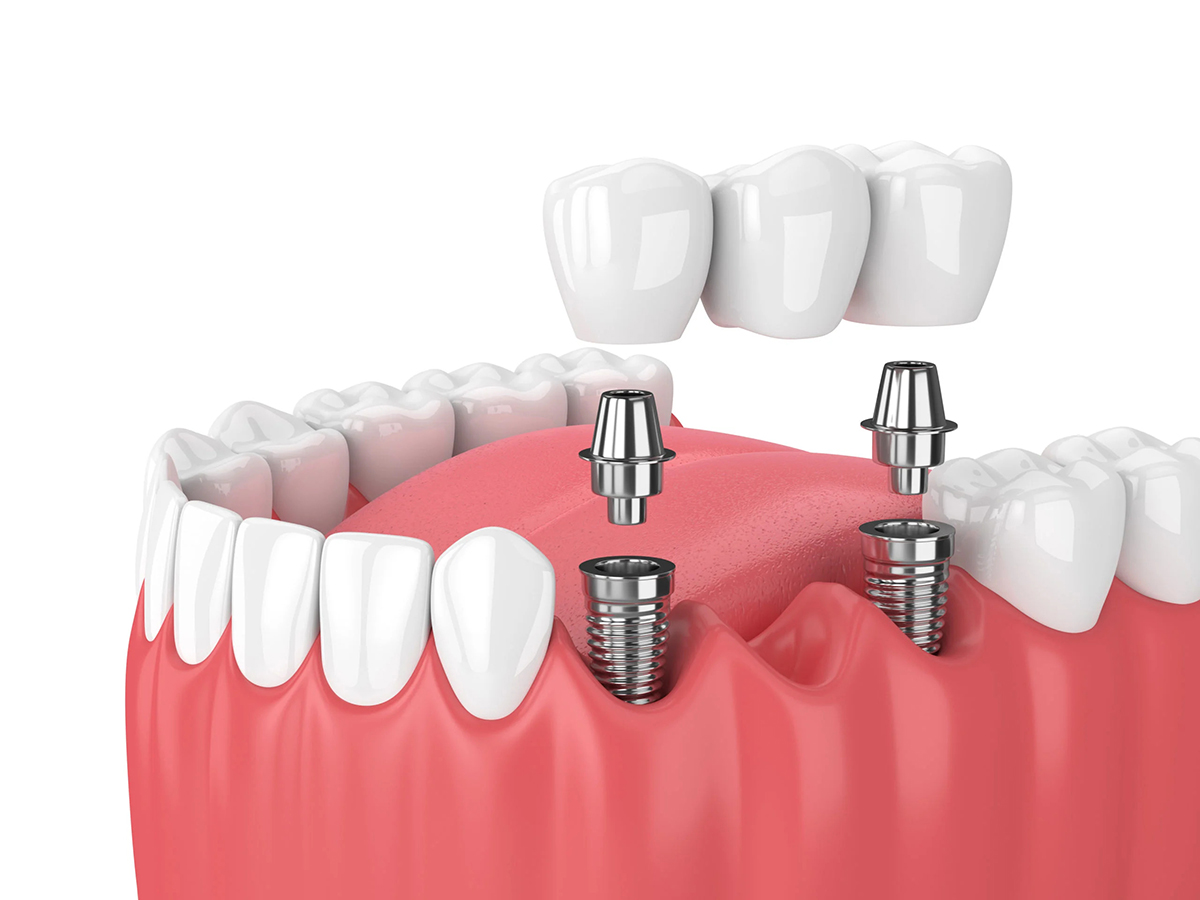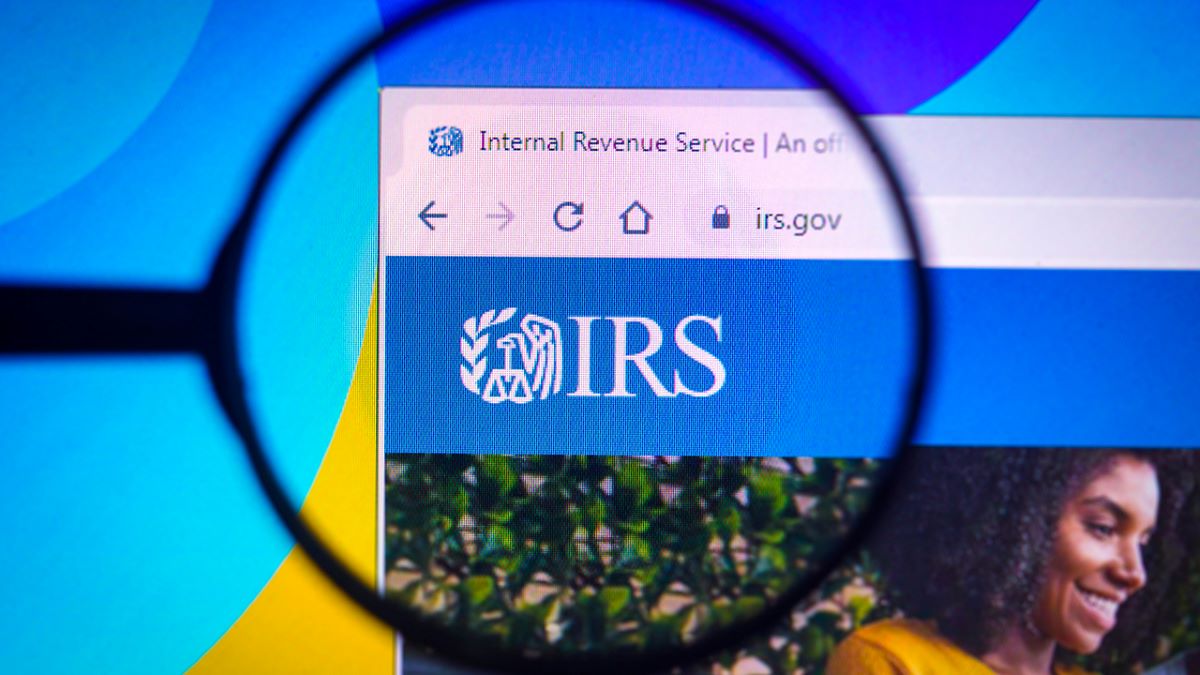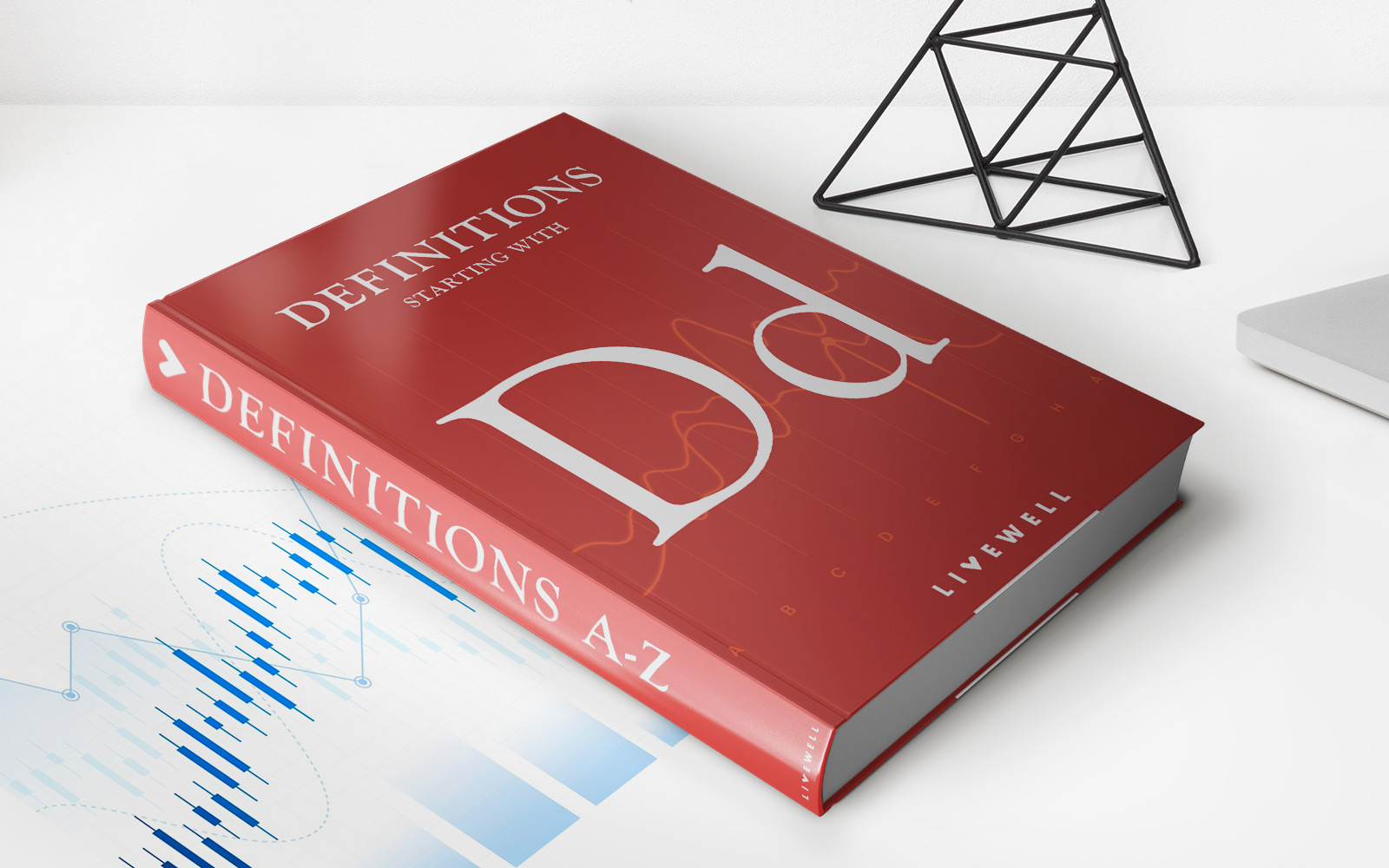

Finance
How Do I Get Dental Insurance Without A Job
Modified: December 30, 2023
Looking for dental insurance options when you don't have a job? Discover how to secure finance and get the dental coverage you need without a traditional employment.
(Many of the links in this article redirect to a specific reviewed product. Your purchase of these products through affiliate links helps to generate commission for LiveWell, at no extra cost. Learn more)
Table of Contents
- Introduction
- Understanding the Importance of Dental Insurance
- Exploring Options for Dental Insurance Without a Job
- Medicaid and CHIP Coverage for Dental Care
- Affordable Care Act (ACA) Marketplace Plans
- COBRA Coverage for Dental Insurance
- Dental Discount Plans and Dental Savings Plans
- Dental Service Organizations (DSOs)
- Other Options for Obtaining Dental Insurance Without a Job
- Conclusion
Introduction
Having good dental health is crucial for overall well-being, but dental care can be expensive, especially if you don’t have a job that offers dental insurance. However, not having a job should not mean sacrificing your oral health. There are several options available for obtaining dental insurance and accessing affordable dental care even without a job.
In this article, we will explore various avenues that can help you get dental insurance without a job. We will discuss government assistance programs, healthcare marketplaces, options through previous employers, dental discount plans, dental service organizations, and other alternatives to ensure that you can find a suitable and affordable insurance solution for your dental needs.
While it may seem daunting at first, with a little research and understanding of the available options, you can still find coverage that fits your situation and budget. Remember, taking care of your dental health is not just about preventing toothaches; it also has long-term implications for your overall health.
Now, let’s delve into the various ways you can obtain dental insurance without a job and navigate the world of dental care affordability.
Understanding the Importance of Dental Insurance
Dental insurance is an essential aspect of maintaining good oral health and can save you from hefty out-of-pocket expenses. Regular dental check-ups, cleanings, and necessary treatments can add up over time, making dental insurance a valuable investment.
Here are a few reasons why dental insurance is important:
- Preventive Care: Dental insurance typically covers preventive services like routine check-ups, cleanings, and X-rays. These preventive measures help identify potential dental issues before they become major problems, saving you from more extensive and costly treatments in the future.
- Treatment Coverage: Dental insurance helps cover the cost of common dental treatments and procedures such as fillings, extractions, root canals, and even orthodontic treatments. Without insurance, these procedures can be financially burdensome.
- Emergency Dental Care: Dental emergencies, such as a severe toothache or a chipped tooth, can happen unexpectedly and require immediate attention. With dental insurance, you can have peace of mind knowing that you can afford necessary emergency treatments.
- Overall Health Connection: Research has shown a clear connection between oral health and overall health. Dental problems, if left untreated, can lead to serious health issues like cardiovascular disease, diabetes, and respiratory infections. By maintaining good oral health through regular dental care covered by insurance, you can help prevent these systemic health issues.
Understanding the importance of dental insurance is critical in making informed decisions about your oral healthcare. Even without a job that offers dental insurance, there are several options available to help you access the coverage you need.
Exploring Options for Dental Insurance Without a Job
When you don’t have a job that provides dental insurance, there are still several avenues you can explore to obtain coverage. Here are some options to consider:
- Medicaid and CHIP Coverage: Medicaid and the Children’s Health Insurance Program (CHIP) offer dental coverage for eligible low-income individuals and families. These government programs vary by state, so it’s important to check your state’s specific guidelines and requirements. Medicaid and CHIP cover a wide range of dental services, including preventive care, fillings, extractions, and more.
- Affordable Care Act (ACA) Marketplace Plans: The Affordable Care Act, also known as Obamacare, mandated that dental coverage for children be offered as part of health insurance plans. While it’s not required for adults to have dental coverage under the ACA, you can still explore the marketplace for dental plans that fit your needs and budget.
- COBRA Coverage: If you recently lost a job that provided dental insurance, you may be eligible for COBRA coverage. COBRA allows you to continue the same insurance coverage you had at your previous job. However, it’s important to note that COBRA coverage can be expensive since you typically have to pay the full premium, including the portion typically covered by your employer.
- Dental Discount Plans and Dental Savings Plans: Dental discount plans and dental savings plans are not insurance, but they can help lower your dental costs. These plans offer discounts on various dental services, including preventive care, fillings, extractions, and even cosmetic treatments. With these plans, you pay an annual fee to become a member and gain access to reduced rates at participating dentists.
- Dental Service Organizations (DSOs): Dental service organizations are dental practices that offer comprehensive care and often have their own dental insurance plans. Some DSOs may offer low-cost or sliding-scale fee options for patients who do not have insurance. These organizations can provide affordable dental care and access to a network of dentists.
- Other Options: Explore other options tailored to your specific circumstances. Some community health centers, nonprofit organizations, and dental schools offer reduced-cost or free dental services to those in need. It’s worth researching and reaching out to see if you qualify for any assistance programs or discounted dental clinics in your area.
It’s important to carefully evaluate these options, taking into consideration your budget, dental needs, and the availability of providers in your area. Each option has its own set of eligibility criteria, coverage limitations, and costs. Make sure to thoroughly research and compare the benefits and drawbacks of each option before making a decision.
Next, let’s take a closer look at Medicaid and CHIP coverage for dental care.
Medicaid and CHIP Coverage for Dental Care
Medicaid and the Children’s Health Insurance Program (CHIP) are government-funded programs that provide comprehensive healthcare coverage, including dental care, to low-income individuals and families. These programs vary by state, so it’s important to check your state’s specific guidelines and requirements for eligibility.
Medicaid and CHIP dental coverage typically includes a range of services, such as:
- Preventive care, including routine check-ups, cleanings, and dental X-rays
- Restorative treatments, such as fillings and extractions
- Emergency dental care
- Orthodontic care for children with severe dental issues
- Some states also provide coverage for dentures and other prosthetic devices
It’s worth noting that dental coverage under Medicaid and CHIP may have certain limitations, such as waiting periods, limitations on certain procedures, or the need for prior authorization. It’s important to understand the specific coverage and limitations in your state.
To qualify for Medicaid or CHIP dental coverage, you must meet certain income and household size requirements. Eligibility criteria can vary by state and may consider factors such as income, age, disability status, and pregnancy. You can check the Medicaid and CHIP websites or contact your state’s Medicaid office for detailed information on eligibility requirements and the application process.
Enrolling in Medicaid or CHIP can provide you and your family with access to affordable dental care. It’s important to note that even if you are eligible for Medicaid or CHIP, not all dentists may accept these insurance plans. Before scheduling an appointment, make sure to confirm with your dentist or the insurance provider that they accept your specific Medicaid or CHIP plan.
Overall, Medicaid and CHIP dental coverage can be a valuable resource for individuals and families who need assistance in accessing dental care. If you meet the eligibility requirements, it’s worth exploring these programs to ensure that you and your loved ones can maintain good oral health.
Next, let’s discuss dental insurance options available through the Affordable Care Act marketplace.
Affordable Care Act (ACA) Marketplace Plans
The Affordable Care Act (ACA), also known as Obamacare, established health insurance marketplaces where individuals and families can compare and purchase insurance plans. While dental coverage for adults is not mandatory under the ACA, dental insurance plans for children are required to be offered.
If you’re seeking dental insurance without a job, the ACA marketplace can be a viable option to explore. Here are some key points to consider:
- Purchasing a Standalone Dental Plan: Even if you don’t opt for a comprehensive health insurance plan through the marketplace, you can still purchase standalone dental insurance for yourself and your family. These plans typically include coverage for preventive care, fillings, extractions, and other dental treatments.
- Dental Coverage as an Essential Health Benefit: Some health insurance plans available through the marketplace may include dental coverage as one of the essential health benefits, alongside medical coverage. These plans can provide more comprehensive coverage for your dental needs.
- Subsidies and Tax Credits: Depending on your income and household size, you may qualify for subsidies or tax credits that can lower your monthly premiums for health and dental insurance purchased through the marketplace. These financial incentives can make dental insurance more affordable.
- Enrollment Periods: It’s important to be aware of the enrollment periods for the ACA marketplace. Typically, the open enrollment period is from November 1st to December 15th, but special enrollment periods may be available if you experience a qualifying life event, such as losing job-based coverage.
Navigating the ACA marketplace can feel overwhelming, but there are resources available to help you understand your options. You can visit the official healthcare.gov website or contact the marketplace call center to get personalized assistance in finding an insurance plan that includes dental coverage.
When exploring ACA marketplace plans, carefully review the benefits, coverage limitations, and costs associated with each plan. Consider factors such as monthly premiums, deductibles, copayments, and the dental networks available. Make sure to choose a plan that aligns with your dental needs and budget.
While dental coverage through the ACA marketplace may have certain limitations, it can still provide valuable assistance in accessing dental care, especially for children. Consider exploring this option to find a suitable dental insurance solution for your specific situation.
Next, let’s discuss COBRA coverage as another option for dental insurance without a job.
COBRA Coverage for Dental Insurance
If you have recently lost your job that provided dental insurance, you may be eligible for COBRA coverage. COBRA, which stands for Consolidated Omnibus Budget Reconciliation Act, allows you to continue the same insurance coverage you had at your previous job, typically for a limited period of time.
Here are some important points to consider regarding COBRA coverage:
- Continuity of Coverage: With COBRA, you can maintain the same dental insurance coverage you had while employed. This can be particularly beneficial if you were satisfied with your previous dental insurance plan and want to avoid disruptions in your dental care.
- Eligibility and Enrollment: To qualify for COBRA coverage, you must have worked for a company with 20 or more employees that offers health insurance benefits. You must also experience a qualifying event such as termination, reduction in work hours, or certain life events like divorce or death. You will receive information about COBRA eligibility and enrollment from your previous employer’s benefits administrator.
- Duration and Cost: COBRA coverage typically lasts for up to 18 or 36 months, depending on the qualifying event. However, it’s important to note that while you can continue the same coverage, you may be responsible for paying the full premium, including the portion typically covered by your employer. This can result in higher monthly costs compared to when you were employed.
- Exploring Alternatives: While COBRA can provide temporary dental insurance coverage, it may not be the most cost-effective option, especially if you are facing financial challenges. It’s worth considering other alternatives, such as Medicaid, CHIP, marketplace plans, or dental discount plans, which may offer more affordable options for dental care.
Before opting for COBRA coverage, carefully evaluate your financial situation and compare the costs of COBRA with other dental insurance options. Remember to consider factors such as premiums, deductibles, and copayments to ensure that COBRA coverage aligns with your budget.
If you decide to pursue COBRA coverage, make sure to understand the specific terms and conditions, including the duration of the coverage and the process for making premium payments. Failure to make timely premium payments can result in the termination of your COBRA coverage.
COBRA coverage allows individuals to maintain their dental insurance during a transition period after losing a job. While it may be an option, it’s essential to explore other avenues as well to ensure you find the most affordable and suitable dental insurance solution for your needs.
Next, let’s discuss dental discount plans and dental savings plans as alternative options for dental insurance without a job.
Dental Discount Plans and Dental Savings Plans
If you are looking for affordable dental care without a job that provides insurance, dental discount plans and dental savings plans can be viable alternatives. While these plans are not insurance, they can significantly reduce your out-of-pocket expenses for dental treatments and services.
Here’s what you need to know about dental discount plans and dental savings plans:
- Dental Discount Plans: Dental discount plans, also known as dental membership plans, offer discounted rates on various dental services. With a dental discount plan, you pay an annual fee to become a member and gain access to a network of dentists who have agreed to provide services at reduced rates. These plans can provide savings of 10% to 60% on dental treatments, including preventive care, fillings, extractions, and even orthodontic services. It’s important to note that you will still be responsible for paying the discounted fees directly to the dentist.
- Dental Savings Plans: Dental savings plans are similar to dental discount plans, but they typically involve paying a monthly or annual fee to gain access to discounted rates. Unlike insurance plans, these plans do not require copayments, deductibles, or waiting periods. You can choose from a network of participating dentists and receive discounted rates on various dental services. Dental savings plans can be a flexible and affordable option for individuals and families seeking dental care without traditional insurance coverage.
- Benefits of Dental Discount and Savings Plans: Dental discount plans and dental savings plans provide several benefits. They often have simple enrollment processes with no waiting periods, pre-existing condition exclusions, or annual benefit limitations. These plans are accessible to individuals and families of all ages and income levels. Additionally, there are typically no restrictions on the number of procedures you can have in a year.
- Considerations: It’s important to carefully review the specifics of each dental discount plan or dental savings plan you are considering. Compare the fees, discounts, and networks of dentists to ensure the plan aligns with your dental needs and preferences. Research and read reviews about the plan and its providers to ensure their quality and reputation.
Dental discount plans and dental savings plans can be cost-effective alternatives to traditional dental insurance, especially if you do not have access to coverage through a job. These plans offer reduced rates on a wide range of dental services and provide flexibility, allowing you to choose a provider that suits your needs and budget.
Remember, it’s important to carefully evaluate the discounts and participating dentists associated with each plan. Make sure to confirm that the dentists you prefer are included in the plan’s network and that the potential savings outweigh the costs of the membership fee.
Next, let’s discuss another option for accessing dental care without insurance: Dental Service Organizations (DSOs).
Dental Service Organizations (DSOs)
Dental Service Organizations (DSOs) are dental practices that provide comprehensive dental care and often offer their own dental insurance plans. These organizations can be a valuable resource for individuals seeking affordable dental care without a job that offers insurance.
Here’s what you need to know about Dental Service Organizations:
- Comprehensive Dental Care: DSOs typically provide a wide range of dental services, including preventive care, restorative treatments, orthodontics, and more. By offering comprehensive care, DSOs aim to meet the diverse dental needs of patients of all ages.
- Dental Insurance Plans: Many DSOs have their own dental insurance plans or may participate in specific networks. These plans can provide affordable coverage for dental services at the DSO and may also offer access to a network of dentists for additional care, if needed.
- Affordability and Accessibility: DSOs often strive to provide cost-effective dental care, making it more accessible for individuals who do not have traditional insurance coverage. Some DSOs may offer low-cost options or sliding-scale fee structures based on income.
- Quality and Expertise: DSOs typically have a team of experienced dentists who specialize in various areas of dental care. This ensures that patients receive high-quality dental treatments and services.
- Considerations: When choosing a DSO, it’s important to research and understand the specific dental insurance plans they offer, as well as any out-of-pocket costs associated with the services you require. Consider factors such as the DSO’s reputation, the expertise of their dental professionals, and the availability of services in your area.
Dental Service Organizations can provide an excellent option for individuals seeking comprehensive dental care and insurance options without a job that offers coverage. By leveraging the resources and expertise of these organizations, you can access affordable dental services and potentially secure dental insurance coverage that aligns with your needs and budget.
Make sure to consult with the DSO and thoroughly understand the terms and conditions of any insurance plans they offer. It’s essential to be aware of coverage limitations, copayments, deductibles, and provider networks to ensure that the DSO and their dental insurance plans meet your specific requirements.
Now, let’s explore other alternatives for obtaining dental insurance without a job.
Other Options for Obtaining Dental Insurance Without a Job
In addition to the options mentioned above, there are several other avenues to consider when seeking dental insurance without a job. These options can help you access dental care at an affordable cost:
- Community Health Centers: Local community health centers often provide comprehensive healthcare services, including dental care, to individuals and families in need. These centers may offer reduced-cost or sliding-scale fee options based on income. Contact your nearest community health center to inquire about available dental services and potential assistance programs.
- Nonprofit Organizations: There are nonprofit organizations that focus on providing dental care to underserved populations. These organizations may operate dental clinics or partner with local dentists to offer affordable or free dental services. Research and reach out to nonprofit organizations in your area to see if they provide dental care options for individuals without insurance.
- Dental Schools: Dental schools often have clinics where dental students, under the supervision of experienced faculty members, provide dental care at reduced costs. While the treatment may take longer due to the learning aspect, it can be an economical option for those without insurance. Contact local dental schools to inquire about their clinics and services.
- Healthcare Sharing Ministries: Healthcare sharing ministries are organizations that facilitate sharing of healthcare costs among members. While not insurance, these ministries pool member contributions to help cover medical and dental expenses. Some healthcare sharing ministries may offer dental care sharing programs, providing assistance with dental costs.
- Dental Assistance Programs: Some states and local communities have dental assistance programs designed to help individuals without insurance access affordable dental care. These programs may offer discounted or free dental services to eligible individuals. Research your state’s dental assistance programs or contact local oral health organizations for information on available resources.
It’s important to thoroughly research and understand the specific terms and requirements of these alternative options. Consider factors such as eligibility criteria, coverage limitations, waiting periods, and the availability of participating providers in your area.
Remember, while these options can provide access to affordable dental care, they may not offer the same level of coverage and benefits as traditional dental insurance. Evaluate your dental needs and budget to find the most suitable option for your circumstances.
By exploring these alternatives, you can find solutions that help you maintain good oral health without a job-based dental insurance plan.
Now, let’s summarize the key points discussed in this article.
Conclusion
Obtaining dental insurance without a job may seem challenging, but there are various options available to ensure you can still access affordable dental care. Understanding the importance of dental insurance and exploring alternative avenues is key to maintaining good oral health.
Options such as Medicaid and CHIP coverage, ACA marketplace plans, COBRA coverage, dental discount plans, dental savings plans, Dental Service Organizations (DSOs), and other assistance programs can provide you with the means to obtain dental insurance or access affordable dental care. Each option comes with its own set of benefits, limitations, and eligibility criteria, so it’s important to research and evaluate them based on your specific needs and budget.
Whether you qualify for government assistance programs, find an affordable plan through the ACA marketplace, explore dental discount plans or savings plans, or consider options through DSOs and community resources, it’s crucial to prioritize your oral health. Regular dental check-ups, preventive care, and necessary treatments are vital for your overall well-being.
Remember to thoroughly review the coverage details, costs, participating providers, and limitations of any insurance or assistance program you consider. Ensure that the plan or option you choose aligns with your dental needs and financial situation.
By being proactive and exploring the available options, you can find a solution that suits your needs, helps you access quality dental care, and promotes good oral health even without a job-based dental insurance plan.
Take the time to research, compare, and reach out to the appropriate resources to find the best dental insurance or care option for you. Your smile and overall well-being are worth the effort.














